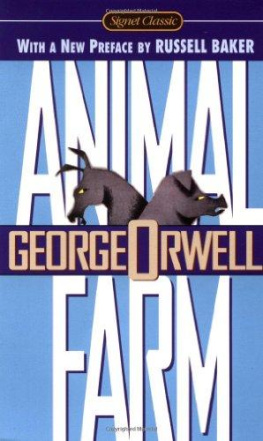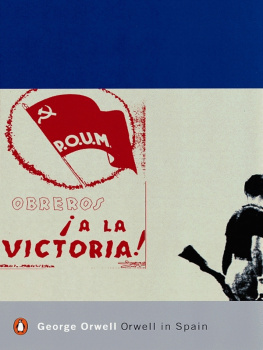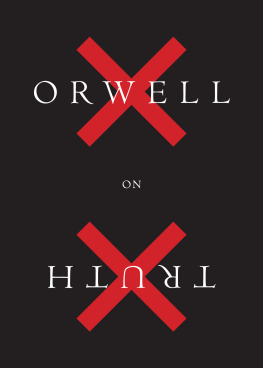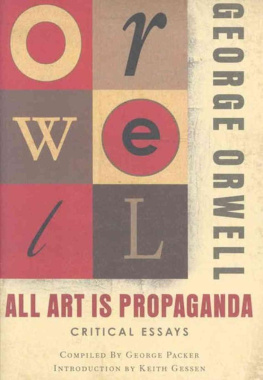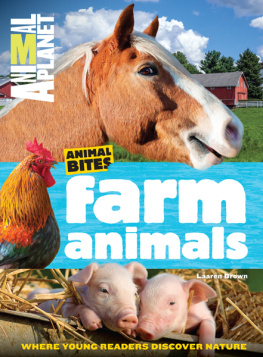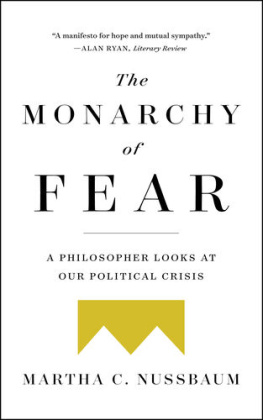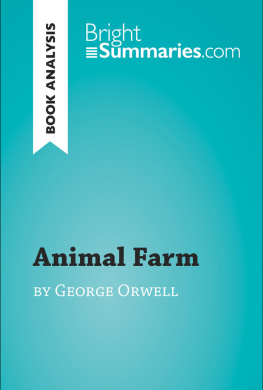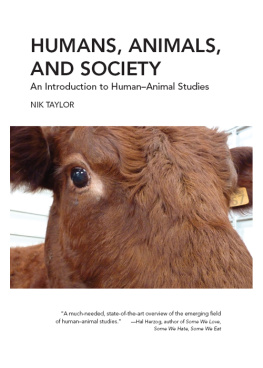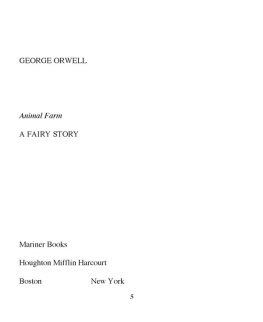IX
BOXERS split hoof was a long time in healing. They had started the rebuilding of the windmill the day after the victory celebrations were ended Boxer refused to take even a day off work, and made it a point of honour not to let it be seen that he was in pain. In the evenings he would admit privately to Clover that the hoof troubled him a great deal. Clover treated the hoof with poultices of herbs which she prepared by chewing them, and both she and Benjamin urged Boxer to work less hard. A horses lungs do not last for ever, she said to him. But Boxer would not listen. He had, he said, only one real ambition left-to see the windmill well under way before he reached the age for retirement.
At the beginning, when the laws of Animal Farm were first formulated, the retiring age had been fixed for horses and pigs at twelve, for cows at fourteen, for dogs at nine, for sheep at seven, and for hens and geese at five. Liberal old-age pensions had been agreed upon. As yet no animal had actually retired on pension, but of late the subject had been discussed more and more. Now that the small field beyond the orchard had been set aside for barley, it was rumoured that a corner of the large pasture was to be fenced off and turned into a grazing-ground for superannuated animals. For a horse, it was said, the pension would be five pounds of corn a day and, in winter, fifteen pounds of hay, with a carrot or possibly an apple on public holidays. Boxers twelfth birthday was due in the late summer of the following year.
Meanwhile life was hard. The winter was as cold as the last one had been, and food was even shorter. Once again all rations were reduced, except those of the pigs and the dogs. A too rigid equality in rations, Squealer explained, would have been contrary to the principles of Animalism. In any case he had no difficulty in proving to the other animals that they were not in reality short of food, whatever the appearances might be. For the time being, certainly, it had been found necessary to make a readjustment of rations (Squealer always spoke of it as a readjustment, never as a reduction), but in comparison with the days of Jones, the improvement was enormous. Reading out the figures in a shrill, rapid voice, he proved to them in detail that they had more oats, more hay, more turnips than they had had in Joness day, that they worked shorter hours, that their drinking water was of better quality, that they lived longer, that a larger proportion of their young ones survived infancy, and that they had more straw in their stalls and suffered less from fleas. The animals believed every word of it. Truth to tell, Jones and all he stood for had almost faded out of their memories. They knew that life nowadays was harsh and bare, that they were often hungry and often cold, and that theywere usually working when they were not asleep. But doubtless it had been worse in the old days. They were glad to believe so. Besides, in those days they had been slaves and now they were free, and that made all the difference, as Squealer did not fail to point out.
There were many more mouths to feed now. In the autumn the four sows had all littered about simultaneously, producing thirty-one young pigs between them. The young pigs were piebald, and as Napoleon was the only boar on the farm, it was possible to guess at their parentage. It was announced that later, when bricks and timber had been purchased, a schoolroom would be built in the farmhouse garden. For the time being, the young pigs were given their instruction by Napoleon himself in the farmhouse kitchen. They took their exercise in the garden, and were discouraged from playing with the other young animals. About this time, too, it was laid down as a rule that when a pig and any other animal met on the path, the other animal must stand aside: and also that all pigs, of whatever degree, were to have the privilege of wearing green ribbons on their tails on Sundays.
The farm had had a fairly successful year, but was still short of money. There were the bricks, sand, and lime for the schoolroom to be purchased, and it would also be necessary to begin saving up again for the machinery for the windmill. Then there were lamp oil and candles for the house, sugar for Napoleons own table (he forbade this to the other pigs, on the ground that it made them fat), and all the usual replacements such as tools, nails, string, coal, wire, scrap-iron, and dog biscuits. A stump of hay and part of the potato crop were sold off, and the contract for eggs was increased to six hundred a week, so that that year the hens barely hatched enough chicks to keep their numbers at the same level. Rations, reduced in December, were reduced again in February, and lanterns in the stalls were forbidden to save Oil. But the pigs seemed comfortable enough, and in fact were putting on weight if anything. One afternoon in late February a warm, rich, appetising scent, such as the animals had never smelt before, wafted itself across the yard from the little brew-house, which had been disused in Joness time, and which stood beyond the kitchen. Someone said it was the smell of cooking barley. The animals sniffed the air hungrily and wondered whether a warm mash was being prepared for their supper. But no warm mash appeared, and on the following Sunday it was announced that from now onwards all barley would be reserved for the pigs. The field beyond the orchard had already been sown with barley. And the news soon leaked out that every pig was now receiving a ration of a pint of beer daily, with half a gallon for Napoleon himself, which was always served to him in the Crown Derby soup tureen.
But if there were hardships to be borne, they were partly offset by the fact that life nowadays had a greater dignity than it had had before. There were more songs, more speeches, more processions. Napoleon had commanded that once a week there should be held something called a Spontaneous Demonstration, the object of which was to celebrate the struggles and triumphs of Animal Farm. At the appointed time the animals would leave their work and march round the precincts of the farm in military formation, with the pigs leading, then the horses, then the cows, then the sheep, and then the poultry. The dogs flanked the procession and at the head of all marched Napoleons black cockerel. Boxer and Clover always carried between them a green banner marked with the hoof and the horn and the caption, Long live Comrade Napoleon! Afterwards there were recitations of poems composed in Napoleons honour, and a speech by Squealer giving particulars of the latest increases in the production of foodstuffs, and on occasion a shot was fired from the gun. The sheep were the greatest devotees of the Spontaneous Demonstration, and if anyone complained (as a few animals sometimes did, when no pigs or dogs were near) that they wasted time and meant a lot of standing about in the cold, the sheep were sure to silence him with a tremendous bleating of Four legs good, two legs bad! But by and large the animals enjoyed these celebrations. They found it comforting to be reminded that, after all, they were truly their own masters and that the work they did was for their own benefit. So that, what with the songs, the processions, Squealers lists of figures, the thunder of the gun, the crowing of the cockerel, and the fluttering of the flag, they were able to forget that their bellies were empty, at least part of the time.
In April, Animal Farm was proclaimed a Republic, and it became necessary to elect a President. There was only one candidate, Napoleon, who was elected unanimously. On the same day it was given out that fresh documents had been discovered which revealed further details about Snowballs complicity with Jones. It now appeared that Snowball had not, as the animals had previously imagined, merely attempted to lose the Battle of the Cowshed by means of a stratagem, but had been openly fighting on Joness side. In fact, it was he who had actually been the leader of the human forces, and had charged into battle with the words Long live Humanity! on his lips. The wounds on Snowballs back, which a few of the animals still remembered to have seen, had been inflicted by Napoleons teeth.

